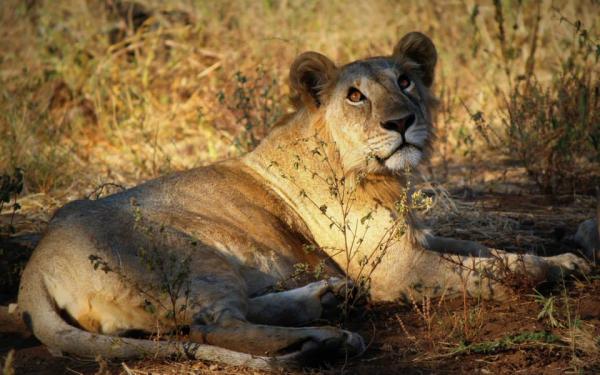Canned hunting - Canned Hunting

Canned hunting is a new and cruel touristic phenomenon that has recently gained a lot of popularity in South Africa and has been seriously threatening species conservation, such as for lions (the most popular prey) and other wild animals.
The term “canned hunting” refers to the reduced spaces where hunting drives take place and where, as anyone can easily imagine, the “brave” hunter cannot but get his target (not surprisingly the most popular advertisement to publicize this activity is “No kill, no pay”).
The majority of the animals used during those drives have been raised in captivity in farms which provide animals to this industry: cubs are separated from their mothers few hours after their births and fed via feeding bottles. This is done mainly for two reasons: on one hand, to raise animals that are accustomed to human beings and that will not run away when facing hunters, and on the other hand, to make mothers fertile and “productive” again the soonest possible.
Animals caught into the wild and others coming from zoos and circuses are also used (the latter group being very accustomed to human beings).
During their first months of life, cubs are frequently used to attract other tourists who wish to cuddle and take pictures with them, while responsible of those centers, who ask for about 5 €, assured them that animals will be reintroduce into the wild.
Nothing is further from the truth, provided that “reintroducing into the wild” would mean let them out from their cages some days – or some hours – before hunting drives. When hunters come, animals are often under the effects of sedatives or they stay in the same place where they usually have their meals. On the other side, hunters “face the danger” in a truck and holding weapons, including crossbows. Hunters are attracted by the guarantee of success and by the relatively cheap prices: if hunting a wild lion in Tanzania can cost almost 60.000 €, doing the same thing in this way costs between 6.000 and 45.000 €. This has ensured that, over the last few years, the number of trophy hunting lions exported from the country grow from 1830, between 2001 and 2006, to 4062, between 2006 and 2011, determining and increase by 122%.
While on one hand are mostly Americans and Europeans who sign up for those drives, the popularity of canned hunting has been also growing in Asia, where there is a great demand of lion body parts to be used for traditional medicine.
Nowadays, in South Africa, there are about 160 farms which raise lions intended to this industry and increase the number captive animals to about 5000 (more than double than those who live in the wild, now counting only to 2000.
Obviously, at FAADA, we are against any form of hunting, however we have decided to underline the cruelty of this type for the evident cowardice which in its participants and for its tight relation to the tourism industry. Such industry can now benefit from hunters who go to South Africa, but, in the long run, will seriously damage local people who make a living out of tourism: on one hand, because of the poor image the country has been developing at international level, and on the other hand, because if in the last few years the population of lions has already decrease of 80%.... what will happen when this animal, a symbol of this country, will cease to exist? How many tourists will stop travelling to South Africa?
Campaign Against Canned Hunting: http://www.cannedlion.org/content/cach
Sources: http://www.huffingtonpost.com/2013/06/05/canned-lion-hunting-video-south-africa_n_3386878.html
http://www.guardian.co.uk/environment/2013/jun/03/canned-hunting-lions-bred-slaughter
“Canned Hunts unfair at any price” by The Humane Society of the United States
Further information on this subject: The Con in Conservation; Lions bred to be shot in South Africa's 'canned hunting' industry ; What's the value of a Lion?
